Every Best Director Oscar Winner, Ever
- Oops!Something went wrong.Please try again later.
- Oops!Something went wrong.Please try again later.
- Oops!Something went wrong.Please try again later.
The Best Director award is one of the most coveted — and at times, hot button — trophies at the Academy Awards
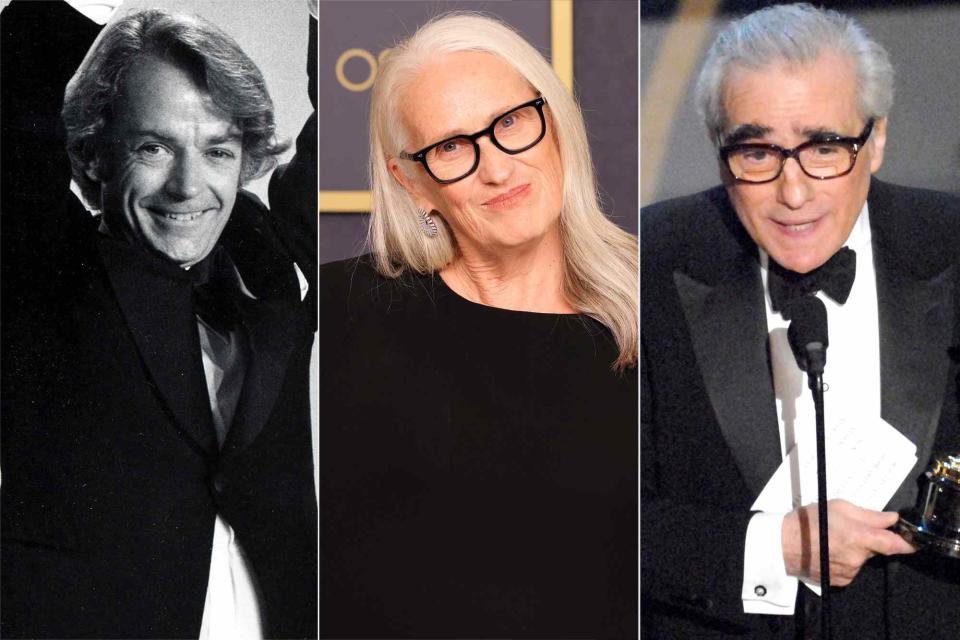
From lighting to set choice to casting, artful and meticulous directors are the reason we have epic films such as The Godfather, Titanic and It Happened One Night that stand the test of time.
Best Director at the Academy Awards is a field that has celebrated some of the most iconic people in film, including the Coen brothers, Ang Lee and Steven Spielberg. But it is not without controversy: over 95 Oscars ceremonies, only eight women have been nominated, and just three have won, the first in 2009.
Here, a rundown of every Best Director Oscar winner since the inception of the Academy Awards in 1929.
2024: Christopher Nolan, Oppenheimer
Oppenheimer won big at the 2024 Oscars, including in the Best Director category, where Christopher Nolan picked up his first award.
2023: Daniel Kwan & Daniel Scheinert, Everything Everywhere All at Once
Everything Everywhere All at Once and its directors Kwan and Scheinert took home seven awards during the 2023 ceremony, the most of any film that year.
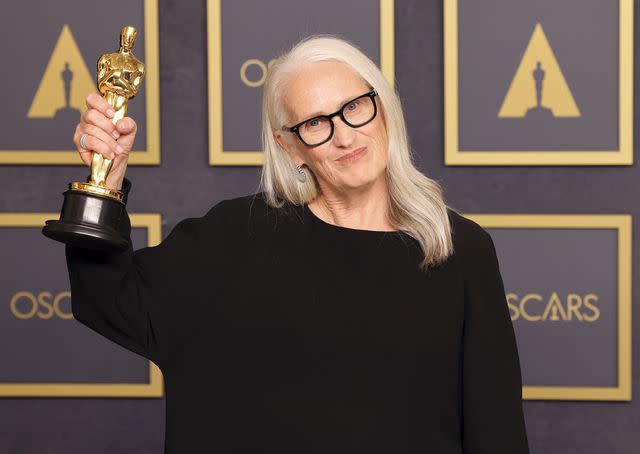
2022: Jane Campion, Power of the Dog
Becoming the third woman in Academy Awards history to win Best Director, Jane Campion snagged the Oscar for her modern-day Western at the 2022 ceremony.
Campion also made history when she was nominated, as she became the first woman to be nominated twice for Best Director — her first nod was in 1993 for The Piano. Though she didn't win then, she did take home the Oscar for Best Original Screenplay for that film.
2021: Chloé Zhao, Nomadland
In another history-making win, not only was Zhao the second woman to ever win in the category, but she was the first Asian woman to take an Oscar for directing.
Related: Female Directors Shut Out of Oscars 2023 After Wins in Consecutive Years
2020: Bong Joon Ho, Parasite
"Once you overcome the one-inch tall barrier of subtitles, you will be introduced to so many more amazing films," said South Korean filmmaker Bong Joon Ho when he accepted the Golden Globe for best motion picture, foreign language in 2020.
At the Oscars that same year, he gave another touching speech, thanking and acknowledging his fellow nominees — Martin Scorsese, Quentin Tarantino, Sam Mendes and Todd Phillips — for their inspiration.
2019: Alfonso Cuarón, Roma
This touching film, inspired by Cuarón's own upbringing, was a black-and-white picture that highlighted the class differences in Mexican culture.
2018: Guillermo Del Toro, The Shape of Water
Going into the 90th Academy Awards in 2018, Del Toro's The Shape of Water had a staggering 13 nominations and snagged four trophies, for Best Picture, Best Director, Best Original Score and Best Production Design.
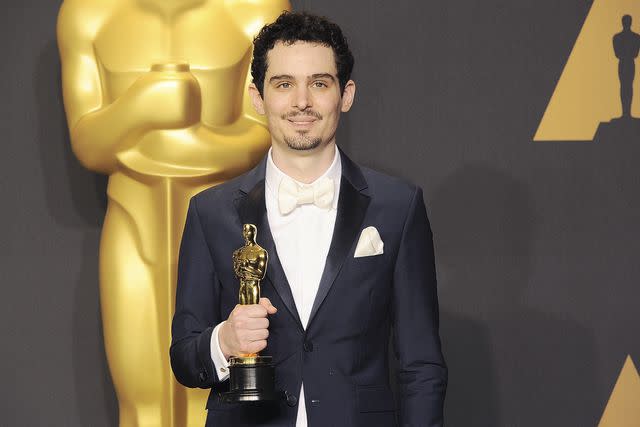
2017: Damien Chazelle, La La Land
Any man who can get Ryan Gosling to break out in those dance moves certainly deserves to be awarded! Chazelle's La La Land was a big hit when it came out, and at the Academy Awards in 2017, it also won Best Cinematography, Best Original Song and Best Production Design in addition to Best Actress for Emma Stone.
2016: Alejandro González Iñárritu, The Revenant
Iñarritu took home the prestigious award for the second year in a row. Not only was this the film that got Leonardo DiCaprio his long-awaited Oscar, but The Revenant, which was based on the true story of explorer Hugh Glass, also won the award for Best Cinematography.
2015: Alejandro González Iñárritu, Birdman or (The Unexpected Virtue of Ignorance)
Starring powerhouses such as Michael Keaton, Edward Norton, Emma Stone and Zach Galifianakis, it's no wonder Birdman was a hit. The film also won trophies for Best Cinematography, Best Picture and Best Original Screenplay.
2014: Alfonso Cuarón, Gravity
This far-out film followed Dr. Ryan Stone (Sandra Bullock), a medical engineer on her first shuttle mission, and soon-to-be-retired veteran astronaut Matt Kowalsky (George Clooney) as they became stranded in deep space after a disaster.
The movie received 10 nominations at the 2014 show — the most that year, tied with American Hustle — and scored seven trophies.
2013: Ang Lee, The Life of Pi
Though CGI versions of the tiger in The Life of Pi were used in certain scenes, according to MTV, filmmakers also worked with four real tigers for reference. This allowed the CGI team to mimic a Bengal tiger's real mannerisms without putting a young Suraj Sharma, who played Pi Patel, in danger.
"We didn't want our actor to get eaten," visual effects supervisor Bill Westenhofer told the New York Times. "It set our bar high for CGI. We couldn't cheat at all. It pushed the artists to go and deliver something that's never been done before, something as photo-real as anyone has ever done with an animal." For their efforts, the team also walked away with the Academy Award for Best Achievement in Visual Effects, Best Cinematography and Best Original Score, in addition to Best Director.
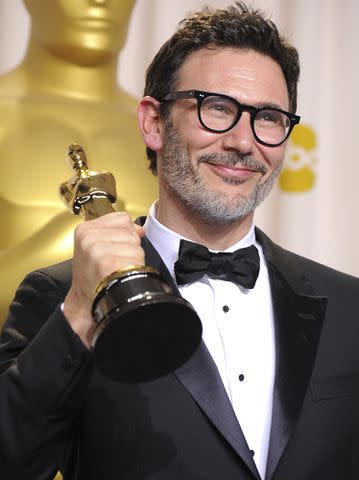
2012: Michel Hazanavicius, The Artist
Sure, Hazanavicius, Bérénice Bejo, Jean Dujardin and John Goodman delivered some incredible work, but the real star of this film was Uggie, the adorable Jack Russell Terrier who was their four-legged collaborator.
In addition to Best Director, The Artist also won Best Picture, Best Actor, Best Costume Design and Best Original Score.
Never miss a story — sign up for PEOPLE's free daily newsletter to stay up to date on the best of what PEOPLE has to offer, from juicy celebrity news to compelling human interest stories.
2011: Tom Hooper, The King's Speech
Another film that had critics and audiences buzzing, The King's Speech had a staggering 12 nominations in 2011, and took two additional trophies on top of Hooper's win for Best Director: Colin Firth was named Best Actor and David Seidler won for Best Original Screenplay.
2010: Kathryn Bigelow, The Hurt Locker
Kathryn Bigelow made Academy Awards history when she became the first woman to win Best Director with her gripping thriller in 2010. The Hurt Locker was nominated for nine awards at the 82nd Academy Awards and walked away with six trophies.
2009: Danny Boyle, Slumdog Millionaire
Launching the careers of Dev Patel and Freida Pinto into the stratosphere, Slumdog Millionaire was critically acclaimed from the moment it debuted at the Telluride Film Festival in 2008.
Going into the 2009 Oscars, the romantic drama had 10 nominations under its belt and won big, sweeping the night with eight trophies, including Boyle's Best Director award.
2008: Joel and Ethan Coen, No Country for Old Men
Starring Javier Bardem, Josh Brolin, Tommy Lee Jones and Woody Harrelson, the film also won the Coen brothers Best Picture and snagged Best Original Screenplay and Best Film Editing, plus a Best Actor win for Bardem.
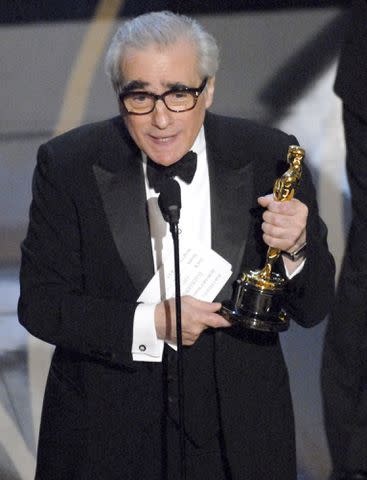
2007: Martin Scorsese, The Departed
Though he has undeniably made a major impact on the film industry, to date Scorsese has won just one Oscar, in 2007 for this crime thriller starring Leonardo DiCaprio, Matt Damon, Vera Farmiga, Jack Nicholson and Mark Wahlberg.
2006: Ang Lee, Brokeback Mountain
Brokeback Mountain brought rousing performances from both Heath Ledger and Jake Gyllenhaal. In addition to Best Director, the movie also won Best Adapted Screenplay and Best Original Score.
2005: Clint Eastwood, Million Dollar Baby
Clint Eastwood's Million Dollar Baby won Best Picture, while Hilary Swank took home the Best Actress in a Leading Role trophy and Morgan Freeman won Best Actor in a Supporting Role.
2004: Peter Jackson, The Lord of the Rings: The Return of the King
As if The Lord of the Rings franchise wasn't already epic back in the early '00s, its competitive presence at big awards shows also made it one to watch.
The Return of the King — the last film of The Lord of the Rings trilogy — had a clean sweep during the 76th Academy Awards in 2004, going in with 11 nominations and winning all.
2003: Roman Polanski, The Pianist
A gripping tale about a Polish Jewish radio pianist who has to find a way to survive during World War II, The Pianist also snagged the Best Actor in a Leading Role (Adrien Brody) and Best Adapted Screenplay Oscars.
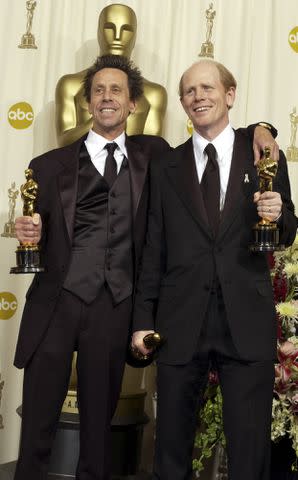
2002: Ron Howard, A Beautiful Mind
Ron Howard won the Best Director award for this drama at the 2002 ceremony.
Additionally, Jennifer Connelly took home the trophy for Best Supporting Actress, while Howard and colleague Brian Grazer won Best Picture and Akiva Goldsman won Best Screenplay Based on Material Previously Produced or Published.
2001: Steven Soderbergh, Traffic
Chronicling how the war on drugs affected different people, this crime drama was a big hit at the 2001 Academy Awards.
Not only did Soderbergh walk away with the Best Director Oscar, but Benicio del Toro also won Best Supporting Actor and the film won Best Screenplay Based on Material Previously Produced or Published.
2000: Sam Mendes, American Beauty
With a budget of $15 million, American Beauty made more than $350 million at the box office.
At the 72nd Academy Awards in 2000, the classic snagged five trophies: Best Picture, Best Director, Best Actor in a Leading Role, Best Screenplay Written Directly for the Screen and Best Cinematography.
1999: Steven Spielberg, Saving Private Ryan
Earning Steven Spielberg his second Best Director Academy Award was this war drama that starred Tom Hanks, Matt Damon, Tom Sizemore, Vin Diesel and Barry Pepper. The film also won Best Sound Effects Editing, Best Cinematography, Best Sound and Best Film Editing.
1998: James Cameron, Titanic
Twenty-six years after the film's premiere in 1997, the topic of whether or not Jack could've fit on that raft with Rose is still a hot-button issue. That's just how impactful Titanic is.
Going into the Academy Awards in 1998, the romantic drama was on track to become one of the highest-grossing films of all time. Titanic won 11 out of the 14 awards it was nominated for including Best Picture, Best Original Dramatic Score and Best Original Song for Céline Dion's "My Heart Will Go On."
1997: Anthony Minghella, The English Patient
Starring Ralph Fiennes, Juliette Binoche, Willem Dafoe, Colin Firth and Kristin Scott Thomas, the film was nominated for 12 Oscars and walked away with nine including Best Supporting Actress for Binoche, Best Picture and Best Original Dramatic Score.
1996: Mel Gibson, Braveheart
Loosely based on the life of the 13th-century Scottish leader William Wallace, Braveheart was nominated for 10 awards at the 1996 Academy Awards and took home five.
1995: Robert Zemeckis, Forrest Gump
Life was sweeter than a box of chocolates when Forrest Gump nabbed the Best Director Oscar for Zemeckis and earned Tom Hanks his second Best Actor in a Leading Role award.
In 2011, Forrest Gump joined Silence of the Lambs, Bambi, Stand and Deliver and 22 other films to be "preserved as cultural, artistic and historical treasures" in the National Film Registry of the Library of Congress.
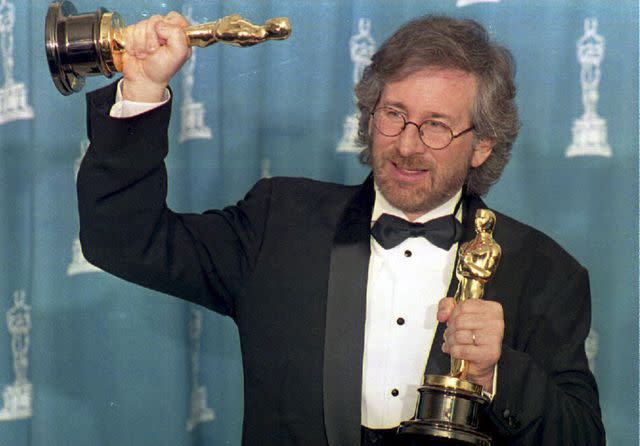
1994: Steven Spielberg, Schindler's List
Based on the novel Schindler's Ark, this heartbreaking drama chronicles the life of German businessman Oskar Schindler, who initially hired Jews from a nearby ghetto to work at his enamel factory in Krakow, Poland, during World War II. He later wound up saving 1,200 Jews from persecution.
The moving film was nominated for 12 Academy Awards and won seven, including Spielberg's first Best Director trophy.
1993: Clint Eastwood, Unforgiven
Earning the legendary actor/director his first Best Director Oscar was this classic Western. The film won three additional awards — Best Supporting Actor for Gene Hackman, Best Picture and Best Editing.
1992: Jonathan Demme, The Silence of the Lambs
Between Sir Anthony Hopkins' disturbing work as Hannibal Lecter and Jodie Foster's portrayal of the naive yet ambitious FBI trainee Clarice, the film achieved Oscars greatness, winning Oscars for Demme, both of its stars and for Best Screenplay.
1991: Kevin Costner, Dances with Wolves
Kevin Costner had a heck of a directorial debut with Dances with Wolves, as the film was nominated for a whopping 12 Academy Awards. It garnered seven trophies at the 63rd Academy Awards in 1991, including Best Picture.
1990: Oliver Stone, Born on the Fourth of July
Starring Tom Cruise, Kyra Sedgwick and Willem Dafoe, this anti-war film also took home a Best Editing Oscar and marked a second Best Director win for Oliver Stone.
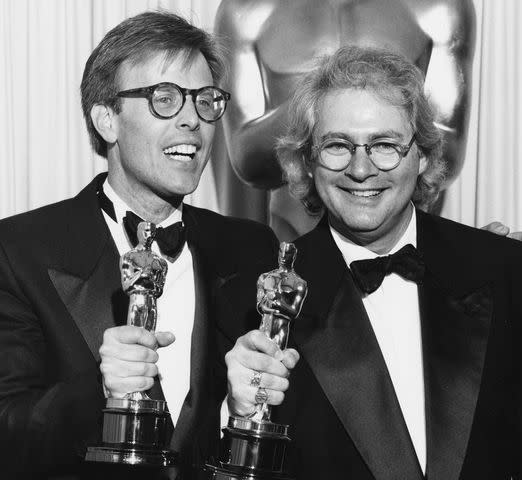
1989: Barry Levinson, Rain Man
Barry Levinson (above, right) won for this road trip comedy starring Dustin Hoffman and Tom Cruise back in 1989. Additionally, the film earned Hoffman his second Oscar, as the legendary star won Best Actor that year. (Fun fact: Barry Levinson is Euphoria creator Sam Levinson's father.)
1988: Bernardo Bertolucci, The Last Emperor
Starring John Lone as the titular character, The Last Emperor chronicled the real life of Pu Yi, the last emperor of China, as he tells his story from his ascension to the throne to his imprisonment. The film won nine Oscars at the 60th Academy Awards, including Best Picture and Best Cinematography.
1987: Oliver Stone, Platoon
Starring Tom Berenger, Willem Dafoe, Charlie Sheen, Johnny Depp, Keith David, Kevin Dillon, John C. McGinley and Forest Whitaker, this star-packed war film earned Stone his first Oscar for Best Director.
1986: Sydney Pollack, Out of Africa
With Robert Redford and Meryl Streep at the helm, it's no wonder Out of Africa scored 11 nominations from the Academy and walked away with seven trophies in 1986.
1985: Miloš Forman, Amadeus
A fictionalized version of Wolfgang Amadeus Mozart's life, Amadeus garnered 11 Oscar nominations in 1985 with both its leads — Tom Hulce, who played the titular character, and F. Murray Abraham, who played his rival, Antonio Salieri — nominated for Best Actor.
Abraham beat Hulce and won the Oscar that year, but with eight wins to Amadeus' name, just about everybody walked away a winner.
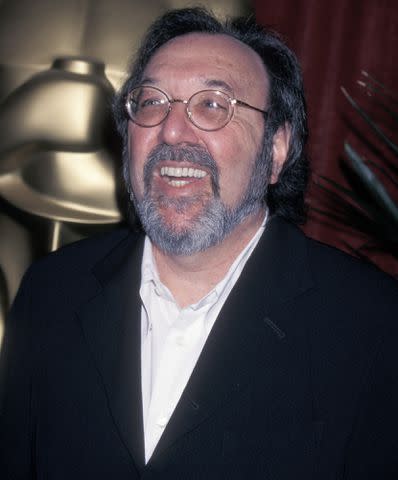
1984: James L. Brooks, Terms of Endearment
Starring Debra Winger, Shirley MacLaine, Jack Nicholson, Danny DeVito, Jeff Daniels and John Lithgow, Terms of Endearment was nominated for 11 Oscars at the 56th Academy Awards. Though it only won five, the film still had the most wins that night, including Best Actress for MacLaine and Best Supporting Actor for Nicholson.
1983: Richard Attenborough, Gandhi
Depicting the life of Mahatma Gandhi from 1893 till his assassination in 1948, Gandhi garnered 11 nominations and won eight awards, the most of any film that year.
1982: Warren Beatty, Reds
Warren Beatty wrote, starred in and produced this historical drama based on the life and career of John Reed, an American journalist, poet and communist activist who grew to prominence for his coverage of the October Revolution in Russia.
1981: Robert Redford, Ordinary People
Actor-turned-director Robert Redford made his directorial debut with Ordinary People. The film had six nominations at the 53rd Academy Awards and took home four, including Best Actor in a Supporting Role for Timothy Hutton.
1980: Robert Brenton, Kramer vs. Kramer
Based on a novel of the same name, Kramer vs. Kramer starred Meryl Streep and Dustin Hoffman as a warring couple in the middle of a divorce.
In addition to the Best Director win, the film also walked away with the Best Actor trophy for Hoffman and a Best Supporting Actress win for Streep.
Justin Henry, who played Hoffman and Streep's son in the film, became the youngest person nominated for an Academy Award at 8 years old, and still holds the record today, per IMDb.
1979: Michael Cimino, The Deer Hunter
The Deer Hunter starred Robert De Niro, Christopher Walken, John Savage, Meryl Streep, John Cazale and George Dzundza. It was nominated for nine Academy Awards and earned five, including Best Supporting Actor for Walken.
1978: Woody Allen, Annie Hall
Following comedian Alvy Singer (Allen) as he analyzes his failed relationship with a former flame (played by Diane Keaton), Annie Hall won Allen his first Academy Awards, including Best Picture and Best Screenplay Written Directly for the Screen. Keaton also won the Best Actress Oscar that year.
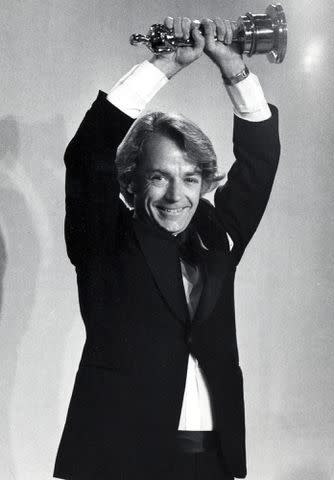
1977: John G. Avildsen, Rocky
Written by Sylvester Stallone, the classic American drama won three awards at the 1977 Oscars: Best Picture, Best Director and Best Film Editing.
1976: Miloš Forman, One Flew Over the Cuckoo's Nest
Another hit movie starring Jack Nicholson, One Flew Over the Cuckoo's Nest swept all the major categories in 1976: Best Director, Best Actor, Best Actress, Best Screenplay and Best Picture.
1975: Francis Ford Coppola, The Godfather Part II
With an ensemble cast that featured heavyweights such as Al Pacino, Robert De Niro, Diane Keaton and Lee Strasberg, it's no wonder The Godfather II was a huge hit, and still remains a revered film to this day. The Godfather II had 11 nods at the 47th Academy Awards and won six, becoming the first sequel to win Best Picture.
1974: George Roy Hill, The Sting
With Robert Redford and Paul Newman at the helm, The Sting won a total of seven Oscars, including Best Picture and Best Film Editing.
1973: Bob Fosse, Cabaret
Liza Minnelli's career was on a steady climb when she starred in Cabaret, and her win for Best Actress in the Fosse film certainly catapulted her to the next level. In addition to Minnelli's trophy, Joel Grey also won Best Actor in a Supporting Role. Additionally, Cabaret won Best Original Score, Best Film Editing, Best Sound, Best Art Direction and Best Cinematography.
Related: Oscars 2024 Winners List: Oppenheimer Leads with 7 Awards Followed by Emma Stone's Poor Things
1972: William Friedkin, The French Connection
Going into the 44th Academy Awards in 1972, The French Connection had eight nominations. On top of Friedkin's win, the crime drama also took home Best Picture, Best Actor for Gene Hackman, Best Director, Best Film Editing and Best Adapted Screenplay.
1971: Franklin J. Schaffner, Patton
Based on the life of controversial WWII hero General George S. Patton, Patton starred George C. Scott as the titular character, plus Karl Malden, James Edwards, Bill Hickman and Carey Loftin.
The film won seven awards including Best Picture and Best Screenplay, plus Best Actor for Scott, which he declined, reportedly because he didn't believe in the idea of pitting actors against one another, History.com reports.
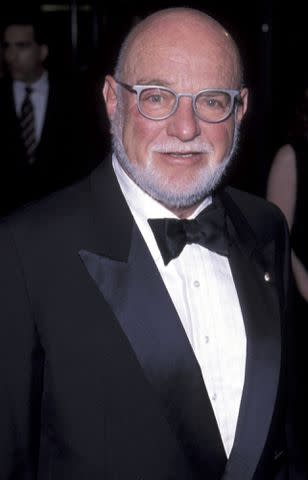
1970: John Schlesinger, Midnight Cowboy
Based on a novel of the same name, Midnight Cowboy was led by stars Jon Voight and Dustin Hoffman. In addition to Best Director, the film won Best Picture and Best Screenplay.
1969: Carol Reed, Oliver!
"Please sir, I want some more," is one of the most iconic lines of all time. The classic catchphrase was derived from this 1968 British film, which was nominated for 11 awards at the 41st Academy Awards in 1969 and won six.
1968: Mike Nichols, The Graduate
Another true American classic, The Graduate surprisingly walked away with only one Academy Award, after having been nominated for seven.
1967: Fred Zinnemann, A Man for all Seasons
Written by Robert Bolt from a play of the same name, A Man for All Seasons followed the last years of Sir Thomas More, the 16th-century Lord Chancellor of England who refused to sign a letter asking Pope Clement VII to annul Henry VIII's marriage. Sir More also refused to take the oath declaring King Henry VIII Supreme Head of the Church of England.
A Man of All Seasons was nominated for eight awards and won six, including Best Actor for Paul Scofield.
1966: Robert Wise, The Sound of Music
Starring Dame Julie Andrews and Christopher Plummer, this classic musical drama was nominated for 10 Academy Awards and nabbed five.
1965: George Cukor, My Fair Lady
Based on the 1913 play Pygmalion by George Bernard Shaw, My Fair Lady starred Audrey Hepburn and Rex Harrison. The film was an immediate hit, becoming the second highest-grossing film of 1964. My Fair Lady was nominated for 12 Academy Awards and won eight, including Best Actor in a Leading Role for Harrison.
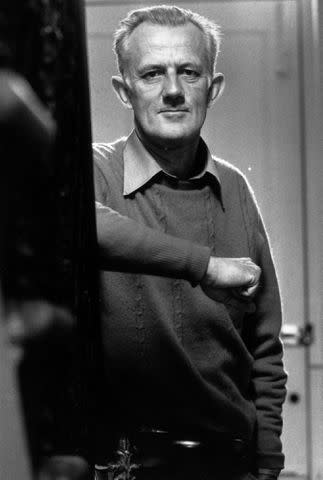
1964: Tony Richardson, Tom Jones
One of the most revered comedies of its time, Tom Jones was nominated for 10 Oscars at the 36th Academy Awards in 1964. The film won four: Best Picture, Best Director, Best Score and Best Screenplay.
1963: David Lean, Lawrence of Arabia
With 10 nods at the 1963 Oscars, Lawrence of Arabia starred Peter O'Toole as Lawrence, as well as Alec Guinness, Jack Hawkins, Anthony Quinn and Omar Sharif. The film won a majority of the awards it was nominated for, taking home seven.
1962: Jerome Robbins & Robert Wise, West Side Story
The music, the dancing, the picture! West Side Story was an immediate cultural phenomenon. It starred Rita Moreno, Natalie Wood, Richard Beymer, Russ Tamblyn and George Chakiris.
The movie was nominated for 11 Oscars and nearly had a clean sweep, winning 10, including Best Actress in a Supporting Role for Moreno, and Best Actor in a Supporting Role for Chakiris.
West Side Story made history as the most decorated musical at the Oscars, a record it still holds today.
1961: Billy Wilder, The Apartment
Starring Jack Lemmon, Shirley MacLaine, Fred MacMurray, Ray Walston, Jack Kruschen, David Lewis, Willard Waterman, David White, Hope Holiday and Edie Adams, this rom-com was nominated for 10 awards and won four, in addition to Best Director.
1960: William Wyler, Ben-Hur
Revered as one of the greatest films in history, Ben-Hur won 11 trophies at the 32nd Academy Awards, including Best Picture, Best Actor for Charlton Heston and Best Actor in a Supporting Role for Hugh Griffin.
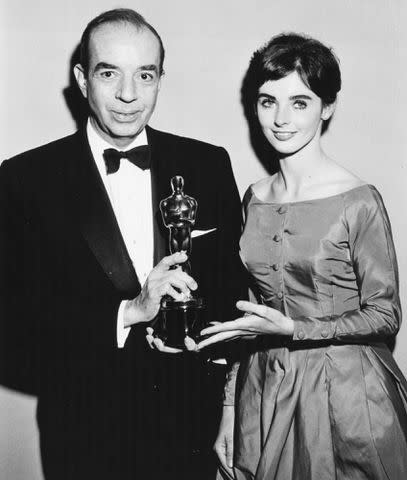
1959: Vincente Minnelli, Gigi
Delivering a clean sweep at the 31st Academy Awards, Gigi won all nine of the Oscars it was up for, including Best Picture, Best Cinematography and Best Original Song.
1958: David Lean, The Bridge on the River Kwai
Starring Alec Guinness, William Holden, Sessue Hayakawa and Jack Hawkins, The Bridge on the River Kwai was nominated for eight Oscars and won seven, losing only in the Best Actor in a Supporting Role category.
1957: George Stevens, Giant
Serving as James Dean's last film, Giant earned the famous actor his second posthumous Oscar nomination, according to the Academy. The film also starred Elizabeth Taylor, Rock Hudson, Mercedes McCambridge and Dan Hopper.
Though it was nominated for 10 awards, Stevens' win for best director was the only trophy Giant won.
Related: Here's Where Stars Keep Their Oscars
1956: Delbert Mann, Marty
This romantic drama was Mann's directorial debut and he did pretty well for a first-timer. Not only did he win Best Director, but the film also won Best Picture, Best Actor for Ernest Borgnine and Best Screenplay.
1955: Elia Kazan, On the Waterfront
Marlon Brando's character may not have been a contender in this film, but On the Waterfront certainly was at the 27th Academy Awards. The film had a staggering 12 nominations and won eight. Brando won Best Actor, while Eva Marie Saint won Best Supporting Actress.
Though Edmond O'Brien won for his role in Barefoot Contessa, it's worth noting that three out of the five Best Supporting Actor nominees at the 1955 Academy Awards starred in this film — Lee J. Cobb, Karl Malden and Rod Steiger. The fifth nominee was Tom Tully for his role in The Caine Mutiny.
1954: Fred Zinnemann, From Here to Eternity
With 13 nominations to its name, From Here to Eternity was certainly one to watch at the 1954 Oscars. And it delivered.
In addition to Zinnemann's Best Director win, Frank Sinatra won the prize for Best Actor in a Leading Role and Donna Reed won Best Actress in a Supporting Role. From Here to Eternity took home eight Oscars in total.
1953: John Ford, The Quiet Man
Starring John Wayne, Maureen O'Hara, Barry Fitzgerald, Ward Bond and Victor McLaglen, The Quiet Man followed the journey of a retired American boxer who returns to his birthplace of Innisfree, Ireland. He falls in love with a girl whose brother does not support their union and the drama ensues. The film was nominated for seven Academy Awards and won two: Best Director and Best Cinematography.
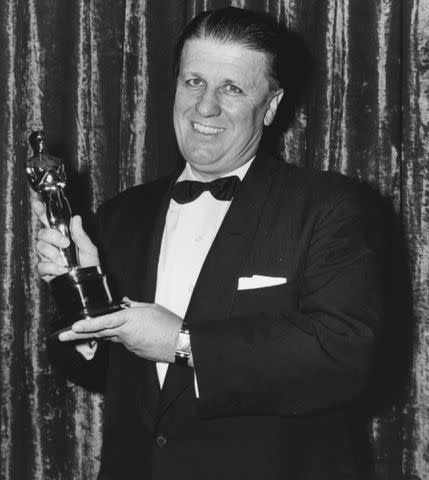
1952: George Stevens, A Place in the Sun
Based on the novel and play An American Tragedy, A Place in the Sun starred Montgomery Clift, Elizabeth Taylor and Shelley Winters. It tracked the tragic love triangle between George Eastman (Clift), Alice Tripp (Winters) and Angela Vickers (Taylor). The film won six awards out of nine nominations.
1951: Joseph L. Mankiewicz, All About Eve
All About Eve starred Bette Davis, Anne Baxter, Celeste Holm, Hugh Marlowe, George Sanders and Thelma Ritter. The movie was nominated for a record-breaking 14 awards and won six including Best Actor in a Supporting Role for Sanders and Best Picture.
1950: Joseph L. Mankiewicz, A Letter to Three Wives
This romantic drama was about a woman who writes a letter to three women, telling them she has skipped town with one of their husbands but doesn't say which one.
Starring Jeanne Crain, Linda Darnell, Ann Sothern, Paul Douglas, Kirk Douglas and Jeffrey Lynn, the film was nominated for three Oscars and won two, Best Director and Best Screenplay. It was also up for Best Picture.
1949: John Huston, The Treasure of the Sierra Madre
The Treasure of the Sierra Madre starred Humphrey Bogart and Tim Holt as two down-on-their-luck men who go searching for gold in Mexico. The film won three of the four Oscars it was nominated for: Best Actor in a Supporting Role for Walter Huston, plus Best Director and Best Screenplay for John Huston.
1948: Elia Kazan, Gentleman's Agreement
Gentleman's Agreement was nominated for eight Oscars at the 20th Academy Awards and walked away with three: Best Picture, Best Director and Best Actress in a Supporting Role for Celeste Holm.
1947: William Wyler, The Best Years of Our Lives
The Best Years of Our Lives followed three men as they tried to assimilate to civilian life after serving in WWII. The drama won seven awards: Best Picture, Best Director, Best Actor (Fredric March), Best Supporting Actor (Harold Russell), Best Film Editing, Best Adapted Screenplay and Best Original Score.
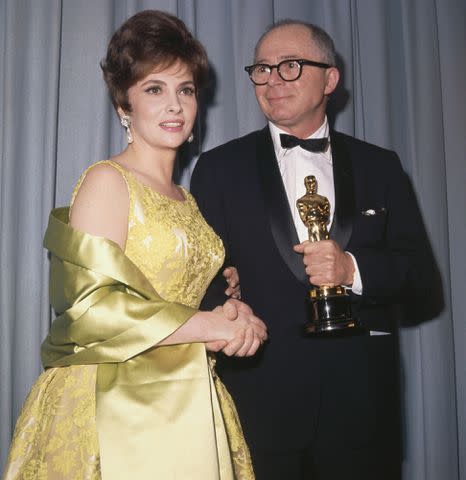
1946: Billy Wilder, The Lost Weekend
Starring Ray Milland and Jane Wyman, The Lost Weekend was based on a novel of the same name, about a struggling alcoholic writer who goes on a weekend bender. The film was nominated for seven Academy Awards and won four: Best Picture, Best Director, Best Actor for Milland and Best Adapted Screenplay.
1945: Leo McCarey, Going My Way
The highest-grossing film of 1944, it's no surprise that Going My Way had 10 nominations at the 1945 Academy Awards.
The film won seven, including Best Picture, Best Actor for Bing Crosby and Best Supporting Actor for Barry Fitzgerald.
1944: Michael Curtis, Casablanca
Another widely revered classic, Casablanca starred Humphrey Bogart, Ingrid Bergman and Paul Henreid. The film won three Academy Awards: Best Director, Best Screenplay and Best Picture.
1943: William Wyler, Mrs. Miniver
Following a middle-class family as they cope with WWII, Mrs. Miniver earned four Oscars: Best Actress and Best Supporting Actress for Greer Garson and Teresa Wright, respectively, as well as the Best Director win for Wyler and Best Screenplay.
1942: John Ford, How Green Was My Valley
Though How Green Was My Valley was a hit and came in with 10 nominations at the 1942 ceremony, people were still shocked when the drama beat out Citizen Kane for Best Picture.
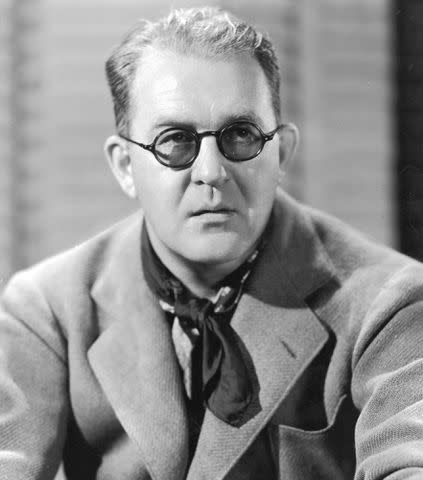
1941: John Ford, The Grapes of Wrath
Based on the John Steinbeck novel of the same name, The Grapes of Wrath was a commentary on The Great Depression and how it affected working-class people.
The film adaption starred Henry Fonda, Jane Darwell, John Carradine and Dorris Bowdon, among others. It was nominated for seven awards and won Best Director and Best Supporting Actress for Darwell.
1940: Victor Fleming, Gone with the Wind
Though this film was greatly respected for decades, its depictions of the Civil War and slavery haven't aged well. It was pulled from HBO Max in 2020, but later put back on the platform with a disclaimer.
Nonetheless, it received 10 Oscars at the 12th Academy Awards including the historic Best Supporting Actress trophy for Hattie McDaniel, who became the first Black person to be nominated for and win an Oscar.
1939: Frank Capra, You Can't Take It with You
You Can't Take It with You laid the groundwork for rom-coms to come. The film depicted a man from an uptight, wealthy family who falls in love with a girl from an eccentric family. The couple invites their relatives to dinner and comedy ensues as opposing family forces interact.
Capra won Best Director and Best Picture for You Can't Take It with You at the 1939 Academy Awards.
1938: Leo McCarey, The Awful Truth
Nominated for six Academy Awards, including Best Picture, Best Actress for Irene Dunne and Best Supporting Actor for Carey Grant, this romantic comedy followed a couple as they go through a divorce, but continue to meddle in each other's new love affairs.
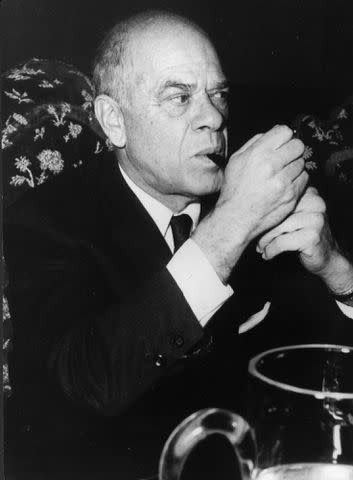
1937: Frank Capra, Mr. Deeds Goes to Town
Two years after It Happened One Night, Capra was once again tops at the Oscars with this heartfelt comedy starring Gary Cooper and Jean Arthur. He walked away with the Best Director trophy.
The film was rebooted in 2002 with Adam Sandler and Winona Ryder in the leading roles.
1936: John Ford, The Informer
Directed and produced by Ford, The Informer was a major contender at the 8th Academy Awards in 1936. The film was nominated for six awards and won four: Best Actor (Victor McLaglen), Best Director, Best Screenplay and Best Original Score.
1935: Frank Capra, It Happened One Night
Setting the bar for years to come, Capra's It Happened One Night was the first film to win in all the major categories: Best Director, Best Picture, Best Actor (Clarke Gable), Best Actress (Claudette Colbert) and Best Adapted Screenplay.
It also launched what was known as Capra's "golden period" in which he won several of the coveted competitive Oscars in just five years.
1934: Frank Lloyd, Cavalcade
In a cavalcade of historic events, this epic film chronicled significant moments in the first third of the 20th century, from the sinking of the Titanic to the death of Queen Victoria to the beginning of World War I.
Cavalcade was nominated for four awards at the 1934 ceremony and it won three: Best Director, Best Picture and Best Art Direction.
1933: Frank Borzage, Bad Girl
Released in September 1931, Bad Girl was honored in 1933 because at the time, the Academy Awards celebrated films that came out between Aug. 1 of one year to Jul. 31 of the following, as opposed to the full calendar year as is now the norm.
Bad Girl was up for three awards and won two. The other win was for Best Writing, Adaptation.
1932: Norman Taurog, Skippy
Skippy, which came out in April 1931, starred Jackie Cooper, Robert Coogan, Mitzi Green and Jackie Searl. The film was up for four awards and won Best Director.
Unknowingly, then-32-year-old Taurog made history as the youngest director to ever get the coveted prize. His record was broken decades later when Damien Chazelle won best director for La La Land in 2016. Though Chazelle was also 32, he was 221 days younger than Taurog at the time he won, according to The Hollywood Reporter.
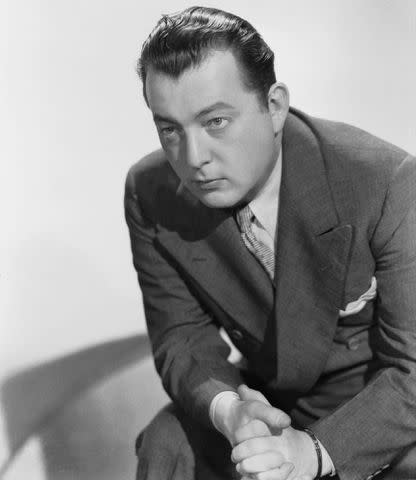
1931: Lewis Milestone, All Quiet on the Western Front
Proving that great art stands the test of time is this anti-war drama, which was remade in 2022 and is once again a big contender at the 2023 Academy Awards.
First released in 1930, All Quiet on the Western Front was nominated for four awards and won two, Best Director and Best Picture.
The remake, which stars Felix Kammerer, Albrecht Schuch, Daniel Brühl, Sebastian Hülk, Aaron Hilmer, Edin Hasanovic and Devid Striesow, is up for nine awards at this year's ceremony.
1930: Frank, Lloyd, The Divine Lady
Released in 1928, The Divine Lady chronicled the love affair between Viscount Horatio Nelson and Lady Emma Hamilton. The film was nominated for three awards and won Best Director.
1929: Lewis Milestone, Two Arabian Knights & Frank Borzage, 7th Heaven
The First Academy Awards were an event of trial and error and the year saw two winners in the Best Director category.
Milestone won Best Director, Comedy Picture for Two Arabian Knights and he would be the only director to hold the title, as Borzage won Best Director, Dramatic Picture for 7th Heaven.
The following year, the two categories were merged to form the singular Best Director category we know today.
The Oscars air live on ABC on Sunday, March 12, at 8 p.m. ET.
For more People news, make sure to sign up for our newsletter!
Read the original article on People.

